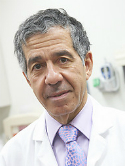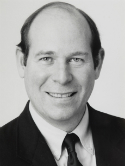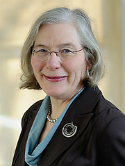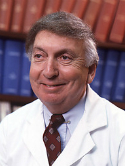| Abstract: |
Heritable and genetic factors pertinent to colon cancer can be divided into three categories: inhereted syndromes, genetic epidemiology, and molecular genetics. Familial adenomatous polyposis (FAP) and Gardner syndrome (GS) are rare dominantly inherited syndromes characterized by hundreds to thousands of colonic adenomatous polyps. Colon cancer occurs at a young age in both diseases unless the colon is removed. Peutz-Jeghers syndrome and familial juvenile polyposis are inherited hamartomatous polyposis conditions with a less dramatic, but definite, increased risk for colon cancer. These four polyposis syndromes together account for less than 1% of cases of colon malignancy. Hereditary nonpolyposis colorectal cancer is a dominantly inherited form of colon cancer characterized by an early age of onset and a predilection for proximal colonic tumours. Multiple primary malignancies are frequently observed and one or several adenomatous polyps are often present in affected individuals; 4-6% of colon cancer cases occur in relationship to this syndrome. Genetic epidemiological studies have consistently shown that first-degree relatives of persons with colon cancer have a twofold to threefold increased risk of having colon malignancy. More recent studies have found a similar risk among relatives of those with adenomatous polyps. Studies of colon cancer and adenomatous polyps in pedigrees have further demonstrated that this familial clustering probably occurs on the basis of partially penetrant inherited susceptibilities. These inherited susceptibilities probably interact with environmental factors to give rise to polyp growth and finally colon cancer. Molecular studies have begun to elucidate the genetic mechanisms of colon cancer at the DNA level. The germinal mutation of FAP and GS has been localized to the long arm of chromosome 5. Tissue samples from "random" adenomatous polyps and colon cancers have shown frequent and specific acquired DNA sequence deletions on chromosomes 5, 17, and 18. Mutations and over-expression of the ras oncogene likewise have been observed in such tissues. The chromosome 5 defect in polyp and cancer tissues is probably at the same locus as the germinal mutation of FAP. There is evidence that this locus normally regulates expression of the c-myc oncogene, which in turn probably has a regulatory function in DNA replication. The chromosome 17 deletion is a mutation of the gene for the transformation-associated protein, p53. Appropriate screening starting at a relatively young age is necessary to prevent cancer in the inherited syndromes. Screening is also indicated in close relatives of those with nonsyndromic or common colon cancer in view of the moderately increased risk of colon cancer in this group. The specific screening guidelines for each category are presented in this paper. |
















